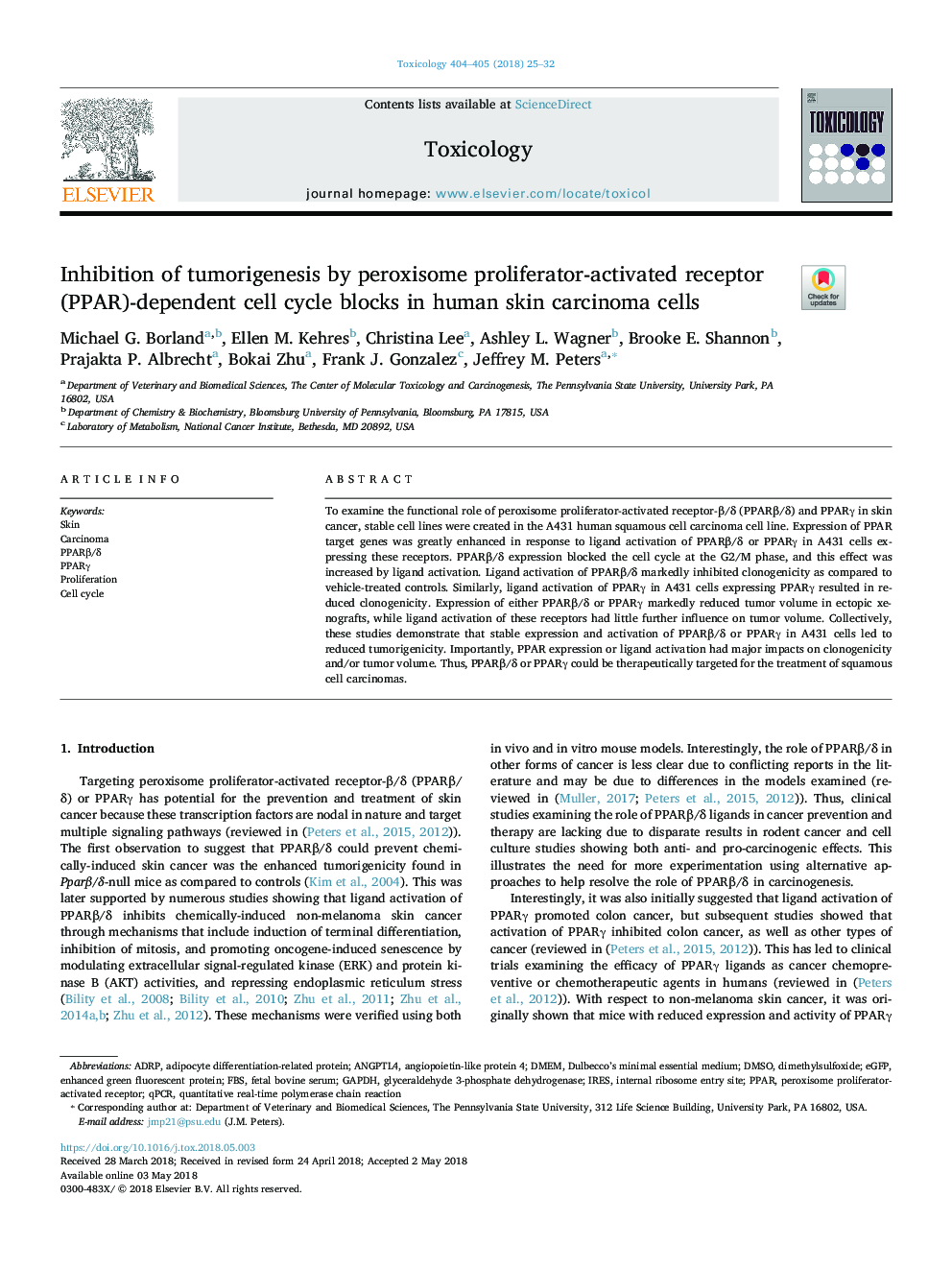| Article ID | Journal | Published Year | Pages | File Type |
|---|---|---|---|---|
| 8552740 | Toxicology | 2018 | 8 Pages |
Abstract
To examine the functional role of peroxisome proliferator-activated receptor-β/δ (PPARβ/δ) and PPARγ in skin cancer, stable cell lines were created in the A431 human squamous cell carcinoma cell line. Expression of PPAR target genes was greatly enhanced in response to ligand activation of PPARβ/δ or PPARγ in A431 cells expressing these receptors. PPARβ/δ expression blocked the cell cycle at the G2/M phase, and this effect was increased by ligand activation. Ligand activation of PPARβ/δ markedly inhibited clonogenicity as compared to vehicle-treated controls. Similarly, ligand activation of PPARγ in A431 cells expressing PPARγ resulted in reduced clonogenicity. Expression of either PPARβ/δ or PPARγ markedly reduced tumor volume in ectopic xenografts, while ligand activation of these receptors had little further influence on tumor volume. Collectively, these studies demonstrate that stable expression and activation of PPARβ/δ or PPARγ in A431 cells led to reduced tumorigenicity. Importantly, PPAR expression or ligand activation had major impacts on clonogenicity and/or tumor volume. Thus, PPARβ/δ or PPARγ could be therapeutically targeted for the treatment of squamous cell carcinomas.
Keywords
DMEMFBSADRPPPARqPCRPPARγANGPTL4eGFPIRESGAPDHDMSOPPARβ/δProliferationDulbecco’s Minimal Essential MediumDimethylsulfoxideinternal ribosome entry sitefetal bovine serumquantitative real-time polymerase chain reactionenhanced green fluorescent proteinangiopoietin-like protein 4Adipocyte differentiation-related proteinSkinCell cycleCarcinomaglyceraldehyde 3-phosphate dehydrogenaseperoxisome proliferator-activated receptor
Related Topics
Life Sciences
Environmental Science
Health, Toxicology and Mutagenesis
Authors
Michael G. Borland, Ellen M. Kehres, Christina Lee, Ashley L. Wagner, Brooke E. Shannon, Prajakta P. Albrecht, Bokai Zhu, Frank J. Gonzalez, Jeffrey M. Peters,
